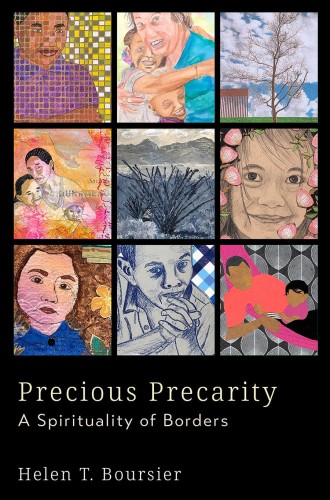Ecclesiastes and the heart-wrenching lives of migrants
Helen Boursier explores spirituality before, during, and after people decide to cross into the United States.

Precious Precarity
A Spirituality of Borders
The most disheartening tendency of theology is its imitation of Moses at Mt. Sinai, hurrying edicts from on high down to the poor sods below. Belittling at best, theology as such looks less like reality than like the sacred cow it condemns. More and more these days, I find myself hungry for conversation partners who lift theological discourse to the experience of human dignity, who dare to run uphill toward the cloudy mountaintops with life’s messiness in tow, full of wonder, graciousness, and tears.
It was with this kind of hunger that I picked up Helen Boursier’s Precious Precarity: A Spirituality of Borders. I’m the pastor of a congregation 30 minutes from one of the world’s busiest pedestrian border crossings, a clergyperson who is involved in civil disobedience at the border and theological witness to its continued militarization, and a preacher in a community that includes many Border Patrol and ICE agents. So I hoped that I may be Boursier’s primary audience. As it turns out, I needed this book even more than I realized, a fact that both troubles and inspires me.
Boursier aims her discourse at faith leaders who find themselves unwillingly steeped in a stew of confusion, hatred, xenophobia, punditry, and bad policy. Her previous book, Willful Ignorance: Overcoming the Limitations of (Christian) Love for Refugees Seeking Asylum, used ethnography and social analysis to reveal the ambivalence of faith leaders toward border concerns. For this work, Boursier changes tack, running her theological project up the mountaintop, tears in tow.





